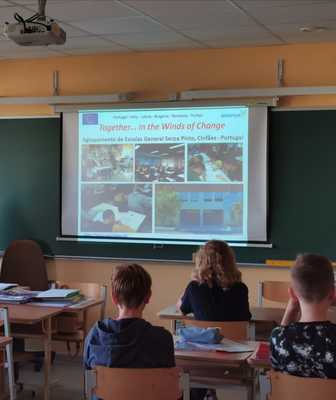
Inčukalns' Primary School is situated ~ 50 km from our capital Riga. The Primary School of Incukalns provides education to children aged 5-16. The students are divided into 9 classes and two preschool group according to their age. We have ~ 20 students in one class.
There are 320 students and ~ 30 teachers. We provide primary education in three different programmes – pre-school educational programme, general primary school education and education for pupils with learning disorders. There are possibilities to enroll in after-school activities: play in the school brass band, learn to play musical instruments in Music and Arts school (it is situated in the same building), learn Art, learn folk dancing, sing in a choir, learn handicrafts, learn additionally ITC, design a school newspaper. Our school has a modern Sports Complex attached to it and we have PE lessons and swimming lessons there.
After lessons our students have the possibility to train there: football, handball, hockey, badminton, frisbee, table tennis,
aerobics, swimming and other sports are available there. The 9th class has State graduation exams in 4 subjects (Latvian,
English/Russian/German, Maths, History) and the School Year ends in the middle of June.

Taking part in a project is a necessity connected with the future vision of our school – so that every pupil feels well here and can acquire the skills and competences that will help them feel included in a modern society. We wish to learn new methods of
working with students with learning disorders and we would like to know how the work is carried out in other parts of Europe because the knowledge in the specific field must be improved and enriched constantly. It is crucial to understand how to plan the
study process in the right way so it meets all the criteria, methods and new ways to work with Special needs pupils. We believe that work on the project will promote a culture of participation, foster among students a feeling of belonging to our school
community. Moreover, these kind of projects canb help provide students with the tools needed to direct their own learning, promote equality and human values, encourage students to get involved in school life through sports, music, art, international
relationships and our re-discovering the cultural heritage and using new methodologies in order to motivate our students and help them develop key competences. Other skills we would like to improve: cultural understanding and expression, tolerance to diversity, mutual understanding and cooperation, the spoken and written English language, using new ITC tools.
